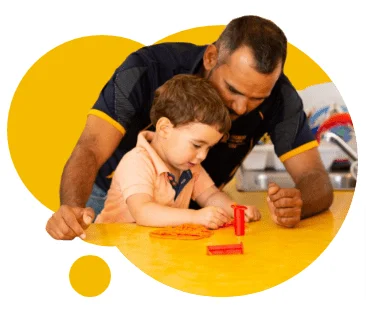One of the most common questions people ask when considering fostering is: “Do I need to own my home to become a foster carer?”
The simple answer is no — you do not have to own a house to be a foster carer. What truly matters is that you can offer a safe, stable, and nurturing environment for a child in need. In this article, we’ll clear up the myths, explain what fostering agencies really look for, and help you understand how you can qualify to foster — even if you rent or live in shared accommodation.
Myth 1: You Must Own Your Own Home to Foster
Many people mistakenly believe that home ownership is a requirement for fostering.
In reality, foster carers can rent their homes — whether it’s a private rental, government housing, or social housing.
Foster agencies understand that family structures and living situations vary widely. What’s important is that the home is clean, safe, and provides enough space for a child to have their own bedroom and personal privacy.
Myth 2: Renters Can’t Provide Stability
Another misconception is that renters move too often to provide a stable environment.
However, fostering agencies are less concerned about ownership and more focused on stability and commitment. If your tenancy is secure and your landlord approves, you can absolutely foster a child.
In fact, many successful foster carers are long-term renters who provide consistent care and love over many years.
Fact 1: Safety and Space Matter More Than Ownership
During the assessment process, foster care agencies conduct a home safety check. They will look for things like:
- Working smoke alarms and safe electrical wiring
- Secure windows and doors
- A clean, hygienic environment
- A separate bedroom for the child
- Access to outdoor space (where possible)
You don’t need a large house — what’s essential is that a child can feel comfortable, secure, and welcome in your home.
Fact 2: Financial Support Is Provided
Some potential carers worry about the financial costs of fostering, especially if they rent.
Foster carers receive a fostering allowance to help cover the costs of caring for a child — including food, clothing, school supplies, and recreational activities. This support ensures that your ability to foster isn’t limited by financial barriers.
Fact 3: Your Personality and Commitment Count Most
Fostering is less about property ownership and more about personal qualities. Agencies look for carers who are:
- Patient, empathetic, and understanding
- Emotionally resilient
- Able to work with professionals and families
- Committed to providing consistent care
Owning a house won’t make you a better foster carer — but your compassion, reliability, and desire to make a difference will.
Steps to Becoming a Foster Carer (Even If You Rent)
If you rent your home and are interested in fostering, here’s what to do:
- Contact a local fostering agency or community service.
- Discuss your living arrangements — they’ll advise if your property meets requirements.
- Inform your landlord and get written permission if necessary.
- Complete the training and assessment process.
- Prepare your home to welcome a child with love and safety.
Most agencies will support you throughout the process and help you make any small adjustments needed to meet standards.
The Bottom Line
Owning your home is not a requirement for becoming a foster carer. What truly counts is your ability to provide care, stability, and emotional support to a child who needs it most.
If your home is safe, your heart is open, and you’re ready to make a difference — fostering could be one of the most rewarding experiences of your life.
Take the Next Step
If you’re thinking about fostering, contact your local foster care agency or community service. They’ll guide you through the process, answer your questions, and help you take the first step toward changing a child’s future for the better.





